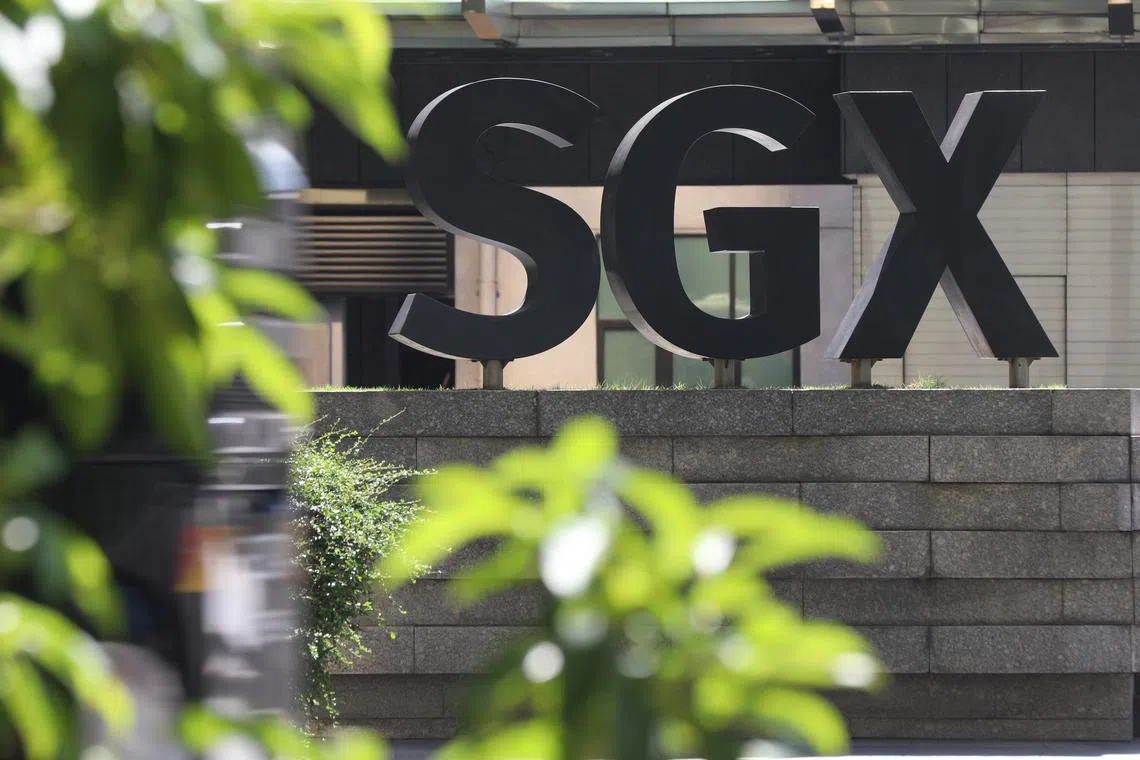Singapore stocks dip despite manufacturing rebound; STI down 0.2%
Sign up now: Get ST's newsletters delivered to your inbox

ST Engineering led the gains on the STI. The counter added 1.8 per cent, closing at $7.88.
PHOTO: BT FILE
Ranamita Chakraborty
Follow topic:
SINGAPORE - Local equities ended Sept 3 lower, even as data showed that manufacturing in Singapore improved slightly.
The sector’s purchasing managers’ index (PMI) edged up to 50 in August from 49.9 in July, the threshold between contraction and expansion, data released on Tuesday by the Singapore Institute of Purchasing and Materials Management indicated.
“Perhaps more significantly, the PMI for the electronics industry, which represents (around) a third of the country’s manufacturing, climbed from 50.2 in July to 50.4 last month,” said Mr Jose Torres, senior economist at Interactive Brokers.
Electronics companies experienced an uptick in new orders, exports, factory output, supplier deliveries and input purchases, he added.
Despite these gains, the benchmark Straits Times Index (STI) fell 0.2 per cent, or 9.18 points, to 4,289.33. Across the broader market, gainers beat decliners 301 to 228, after 1.3 billion securities worth $1.3 billion were transacted.
ST Engineering led the gains on the STI. The counter added 1.8 per cent or 14 cents, closing at $7.88.
The index was dragged down by Frasers Logistics & Commercial Trust, which declined 1.6 per cent or 1.5 cent to 91.5 cents.
The trio of local banks ended lower. DBS fell 0.6 per cent or 31 cents to $50.40, UOB was down 0.1 per cent or 4 cents at $35.56, and OCBC retreated 0.3 per cent or 5 cents to $16.80.
Regional indexes posted a mixed finish on Sept 3, with South Korea’s Kospi rising 0.4 per cent and Malaysia’s Kuala Lumpur Composite Index gaining 0.1 per cent.
Hong Kong’s Hang Seng Index lost 0.6 per cent and Japan’s Nikkei 225 declined 0.9 per cent.
Mr Torres said this mixed showing came amid investor pessimism around geopolitics, with safe-haven gold reaching a new high for the first time since April.
He noted that Moscow and Beijing are “securing a pipeline deal that is strengthening prospects of long-term collaboration at a time when New Delhi is looking to get closer to its Far East neighbours, against the backdrop of weakening relations with Washington”. THE BUSINESS TIMES

